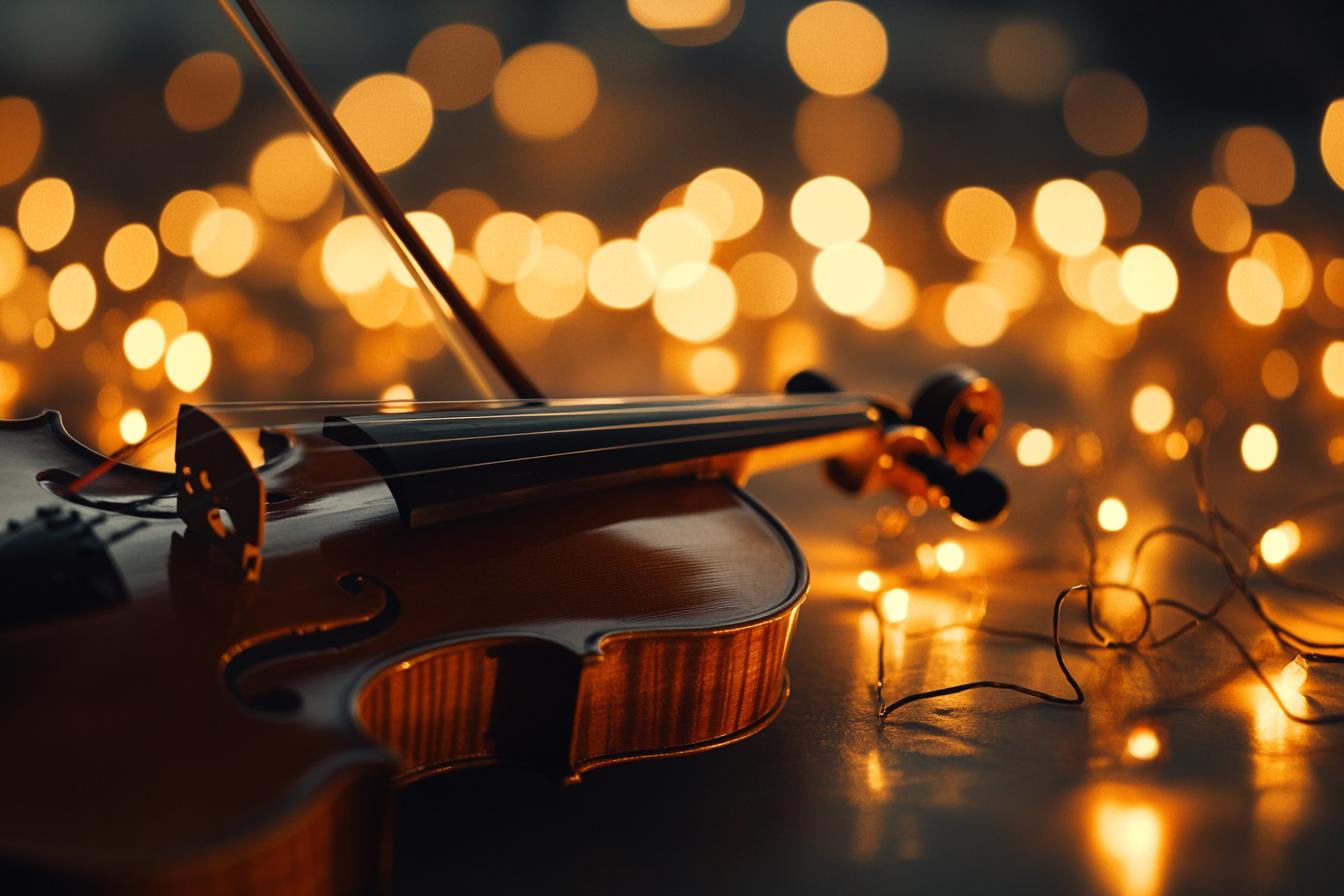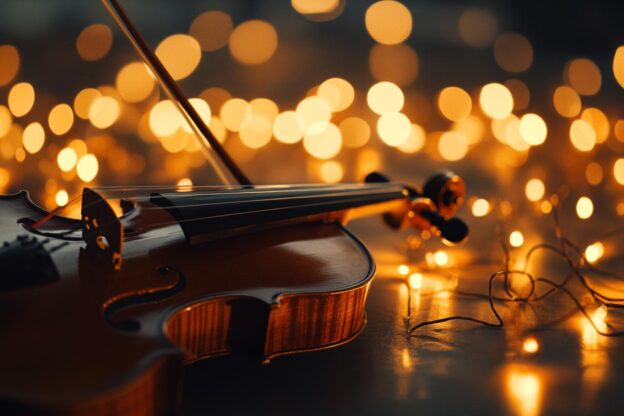Classical music documentaries have found a unique home on radio, where the medium’s aural nature allows for a deep exploration of the music itself. Listeners can immerse themselves in the intricacies of a symphony or the emotional depth of a concerto without the distraction of visual elements. This focus on sound enables radio documentaries to delve into the history, techniques, and interpretations of classical music with an unparalleled level of detail. For example, a documentary might trace the evolution of a specific musical form or analyze the subtle nuances in the performance of a famous composer’s work. This depth of exploration can be particularly engaging for listeners who are passionate about the intricacies of classical music.
However, the lack of visual elements in radio documentaries also presents challenges. How can a listener truly grasp the grandeur of a cathedral where a piece was first performed, or the emotional intensity of a performance by a renowned orchestra? While radio documentaries cannot physically transport the listener to these places, they can evoke these experiences through evocative language, sound effects, and interviews. By combining narration with recordings of performances, historical accounts, and interviews with experts, radio documentaries can create a vivid and engaging experience for listeners, transporting them into the world of classical music.

Classical Music Documentaries
1. Classical Music Documentaries
Classical music documentaries offer a fascinating window into the world of composers, performers, and the music itself. They can explore the lives and creative processes of iconic figures like Beethoven or Mozart, providing insights into their inspirations and struggles. Additionally, documentaries can delve into the history of specific musical periods, highlighting the social and cultural contexts that shaped the music. For example, a documentary might examine the rise of the symphony orchestra or the impact of the French Revolution on musical trends.
Beyond biographical and historical narratives, classical music documentaries can also examine the technical aspects of music, such as the construction of instruments or the nuances of performance. They can also explore the power of music to evoke emotions, connect communities, and transcend cultural boundaries. By offering a diverse range of perspectives, classical music documentaries help us understand and appreciate this complex and enduring art form.
2. Exploring composers lives and works
Imagine stepping into the mind of a musical genius, unraveling the stories behind their masterpieces. Classical music documentaries often delve into the lives and works of composers, offering a fascinating glimpse into their creative process, personal struggles, and historical context. These documentaries paint a vivid picture of the composer’s world, showcasing their influences, inspirations, and the social and cultural forces that shaped their music. From the grandeur of Mozart’s operas to the emotional depth of Beethoven’s symphonies, documentaries illuminate the human stories behind the iconic compositions, making the music resonate on a deeper level.
Beyond simply presenting the music, these documentaries offer insights into the composer’s creative journey, showing how their personal experiences shaped their musical language. Documentaries may explore the challenges faced by composers, such as financial struggles, societal expectations, or personal tragedies. They may also highlight the triumphs and collaborations that fueled their creativity. By understanding the composers’ lives, we gain a richer appreciation for the complexities and emotions woven into their music, adding another layer of depth to our listening experience.
3. Revealing the history of classical music
Classical music documentaries offer a fascinating journey through time, revealing the rich tapestry of composers, movements, and innovations that have shaped this genre. These documentaries delve into the lives and works of iconic figures like Bach, Mozart, and Beethoven, exploring their creative processes, personal struggles, and the social and political contexts that influenced their music. They also highlight lesser-known composers and musical traditions, uncovering hidden gems and shedding light on the diverse evolution of classical music across cultures and centuries.
Beyond individual stories, these documentaries explore broader themes like the development of musical instruments, the rise and fall of musical styles, and the impact of classical music on society. They examine how musical ideas spread, how composers challenged conventions, and how the meaning and purpose of classical music have changed over time. By bringing history to life, these documentaries not only educate but also inspire, encouraging listeners to engage with classical music on a deeper level and appreciate its enduring power.
4. Showcasing iconic performances
Classical music documentaries often highlight iconic performances, capturing the magic of legendary musicians in their prime. These films delve into the history of these performances, exploring the context, the artists’ motivations, and the impact they had on the musical world. They might feature interviews with the performers themselves, shedding light on their creative process and the challenges they faced. By showcasing these legendary moments, documentaries provide a unique opportunity to experience the power and beauty of classical music firsthand.
Beyond simply recording the performances, documentaries can utilize archival footage, photographs, and audio recordings to create a rich tapestry of the past. They can also use modern technology to enhance the viewing experience, allowing audiences to appreciate the nuances of the music in new ways. By weaving together historical context, personal stories, and the sheer brilliance of the performances, these documentaries offer a captivating glimpse into the world of classical music and the enduring legacy of its greatest artists.
5. Documenting musical innovations
Documenting musical innovations is crucial for understanding the evolution of classical music. Musicologists and historians meticulously research and analyze scores, performance practices, and historical context to uncover the creative forces behind groundbreaking musical ideas. They examine the influences that shaped composers’ work, from societal trends and technological advancements to personal experiences and artistic dialogues. By documenting these innovations, we gain a deeper appreciation for the ingenuity and artistry that have shaped the classical music landscape.
Documentaries play a vital role in bringing these innovations to life for a wider audience. By combining archival footage, interviews with experts, and compelling narratives, documentaries can illuminate the stories behind revolutionary musical concepts. They can show how composers challenged conventions, pushed boundaries, and ultimately, enriched the musical vocabulary. These documentaries act as windows into the creative process, allowing viewers to witness the birth of new ideas and their impact on the world of classical music.
6. Inspiring new audiences
Classical music documentaries can play a vital role in introducing new audiences to this rich genre. By telling compelling stories about composers, performers, and the historical context of the music, these documentaries can make classical music more accessible and engaging. They can showcase the emotional power and beauty of the music, dispel myths about its inaccessibility, and highlight the diverse range of styles and genres within the classical tradition. Moreover, documentaries can connect classical music to contemporary issues and explore its influence on popular culture, fostering a sense of relevance for modern audiences.
Documentaries can also inspire new audiences by using innovative storytelling techniques and engaging visual elements. They can use animation, archival footage, and interviews to bring the music to life and create a multi-sensory experience. By showcasing the passion and artistry of musicians, these documentaries can spark a love for classical music and encourage audiences to explore it further. In addition, documentaries can highlight the social and cultural impact of classical music, emphasizing its role in shaping societies and fostering human connection.
Conclusions
So, there you have it! Classical music documentaries on radio are a fantastic way to dive into the world of music history, iconic performances, and groundbreaking innovations. These documentaries bring the lives and works of composers to life, revealing fascinating stories behind the music we know and love. They also provide a platform to showcase incredible performances by renowned musicians, inspiring listeners to explore new genres and artists. Whether you’re a seasoned classical music enthusiast or a curious newcomer, radio documentaries offer a unique and engaging way to experience the beauty and complexity of this timeless art form.
And that’s not all! These documentaries can also inspire a whole new generation of music lovers. By sharing the stories and artistry of classical music, they open up a world of possibilities and spark curiosity in listeners of all ages. So, tune in to your favorite radio station and get ready to discover the magic of classical music through the captivating lens of documentary storytelling.
